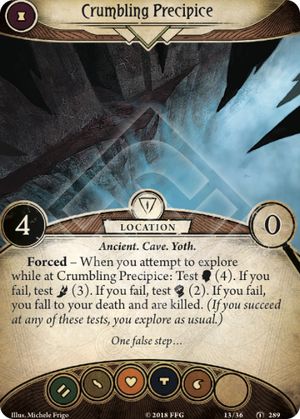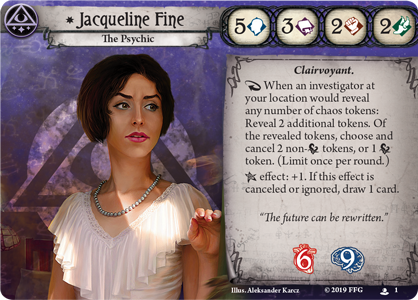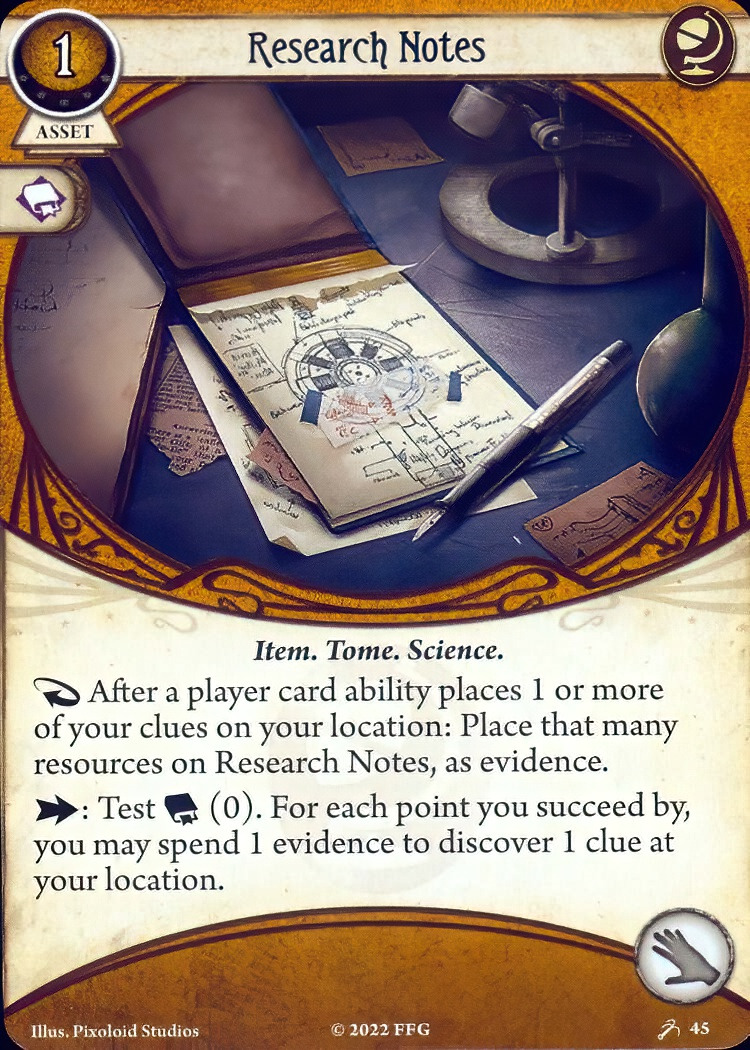
This review will probably never be seen by anyone, but in case it does, I want to point out how much this card is an example of why I love this game:
- Test to not be afraid.
- If you are afraid, test to not trip.
- If you tripped, test to hold on and climb back up.
- If you fail all 3 tests, you fall into the infinite depths... of Yoth.
It's just such a great way to blend gameplay and storytelling while also creating great tension (the is always around the corner).



